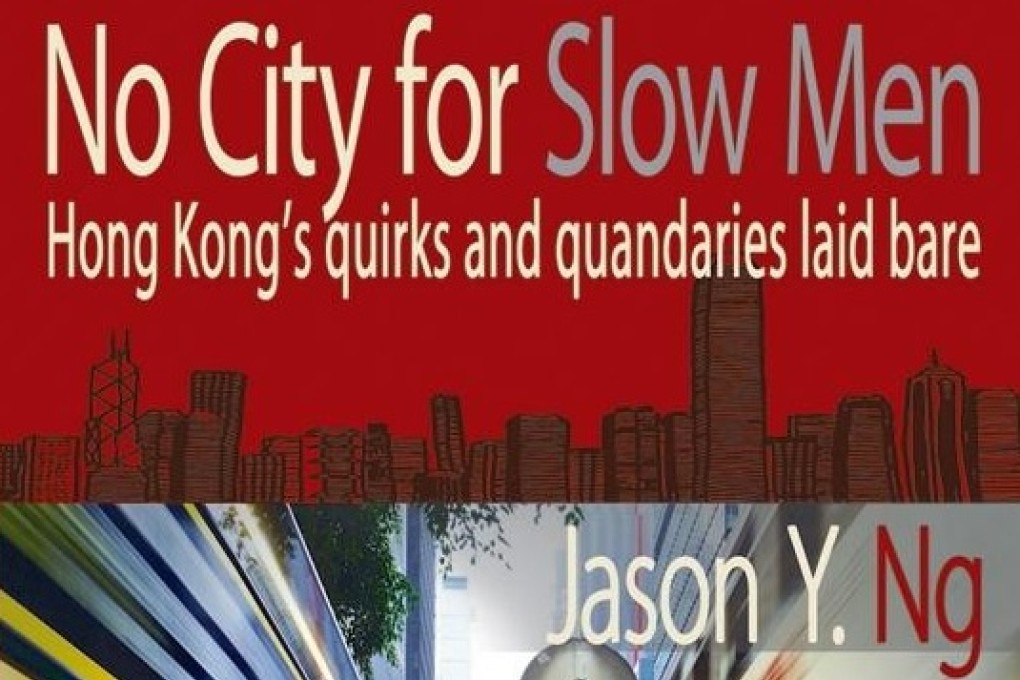Book review: No City for Slow Men, by Jason Ng
Hong Kong lawyer and blogger Jason Y. Ng is back with a new book of insights after casting his perceptive gaze over the good, bad and ugly side of city life.

by Jason Ng
Blacksmith Books
Guy Haydon
Hong Kong lawyer and blogger Jason Y. Ng is back with a new book of insights after casting his perceptive gaze over the good, bad and ugly side of city life.
After 2010's Hong Kong State of Mind, Ng says that in those three years the city has had a new chief executive and seen property prices nearly double. "Poverty, a housing shortage and racial disharmony have polarised … society. Distrust of government and big business has surged to new highs. Tensions between Hong Kong and mainland China are boiling over."
He offers 36 nicely judged, pithy - often punchy - essays to "inform and empower" readers in three areas: "Our Way of Life", "Our Culture" and "Our Identity".
Ng's unpretentious writing reveals a frank, cut-to-the-chase view of life - plus, on occasion, a commendably sympathetic nature. He takes aim at government and developers: in "Those Who Live in Glass Houses", he targets Chief Executive Leung Chun-ying, who discredited Henry Tang Ying-yen by focusing on illegal construction at his rival candidate's home, yet had to remove an illegal storeroom and glass enclosure at his own home. "Those who literally live in glass houses … lack the moral authority to make us follow rules that they themselves have broken."
Ng rails at our sky-high property prices and developers, who hold such sway over policymakers while running retail chains, utilities, public transport and phone services.